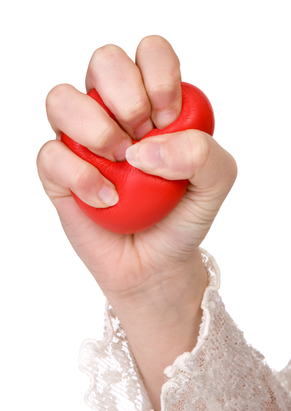Heart disease. I have been writing about it for years. And the news doesn’t get much better. According to the American Heart Association, heart disease kills approximately one woman every minute. More importantly, despite the great strides that have been made on the research, treatment and even education fronts, 90% of women in the U.S. have at least one risk factor for heart disease. Yikes!
Allow me to share one of the greatest risk factors, one that you might not be aware of:
Mental stress.
If you are a regular reader of Flashfree, you know that stress can affect mood, sexual desire and symptoms of menopause. And not surprisingly, the association between mental stress and heart disease is well established. However, new study findings published online in the Journal of the American College of Cardiology suggest that mental stress might actually take a greater toll on women’s hearts than on men’s.
In the study (which had originally been designed to assess the impact of an antidepressant on stress-induced heart issues,)male and female participants were exposed to mental stress exercises, including one designed to induce anger. The researchers also evaluated factors that would indicate how the well or poorly the heart was functioning in relation to stress including blood pressure and heart rate as well as reduction in blood flow. Mind you, of the 310 people participating in the study, only 54 were women and this small sample does create certain limitations when it comes to interpreting the findings. However, the report shows that during times of stress, 57% of these women experienced reduced blood flow to their hearts, versus 41% of men. This is not to say that the men dodged the bullet; indeed, men had greater increases in traditional measures such as blood pressure.
Another important finding was the impact of mental stress; women tended to express more negative emotions and experienced a decline in the positive. And, the researchers say that they also observed differences in how the platelets behaved. In the bloodstream, platelets are responsible for stopping bleeding and in aid in clotting. However, they can also clump together to block the flow of blood when the vessels are damaged. In response to mental stress, not only did the blood platelets react more strongly and clump to a greater extent in women than in men, but the women had roughly twice the odds of this occurring.
The researchers say that the findings highlight gender differences in heart disease risk but also suggest that available risk prediction tools may fall short; this is because they don’t measure the full spectrum of mental-stress induced physical and psychological changes. What immediately comes to mind is the recent app launched by the North American Menopause Society, which in addition to promising a more seamless exchange of information and resources between provider and patient, also offers access to cardiovascular risk assessment. That aside, it’s definitely time to change the paradigm. Recent data suggest that death rates from heart disease in women have declined BUT the number has exceeded that of men for the past 20 years. By teasing out the why and what, there may be an avenue to change the narrative. Today, that avenue is mental stress.
The key message is to to be mindful of stress before it stills your heart and steals your life.







